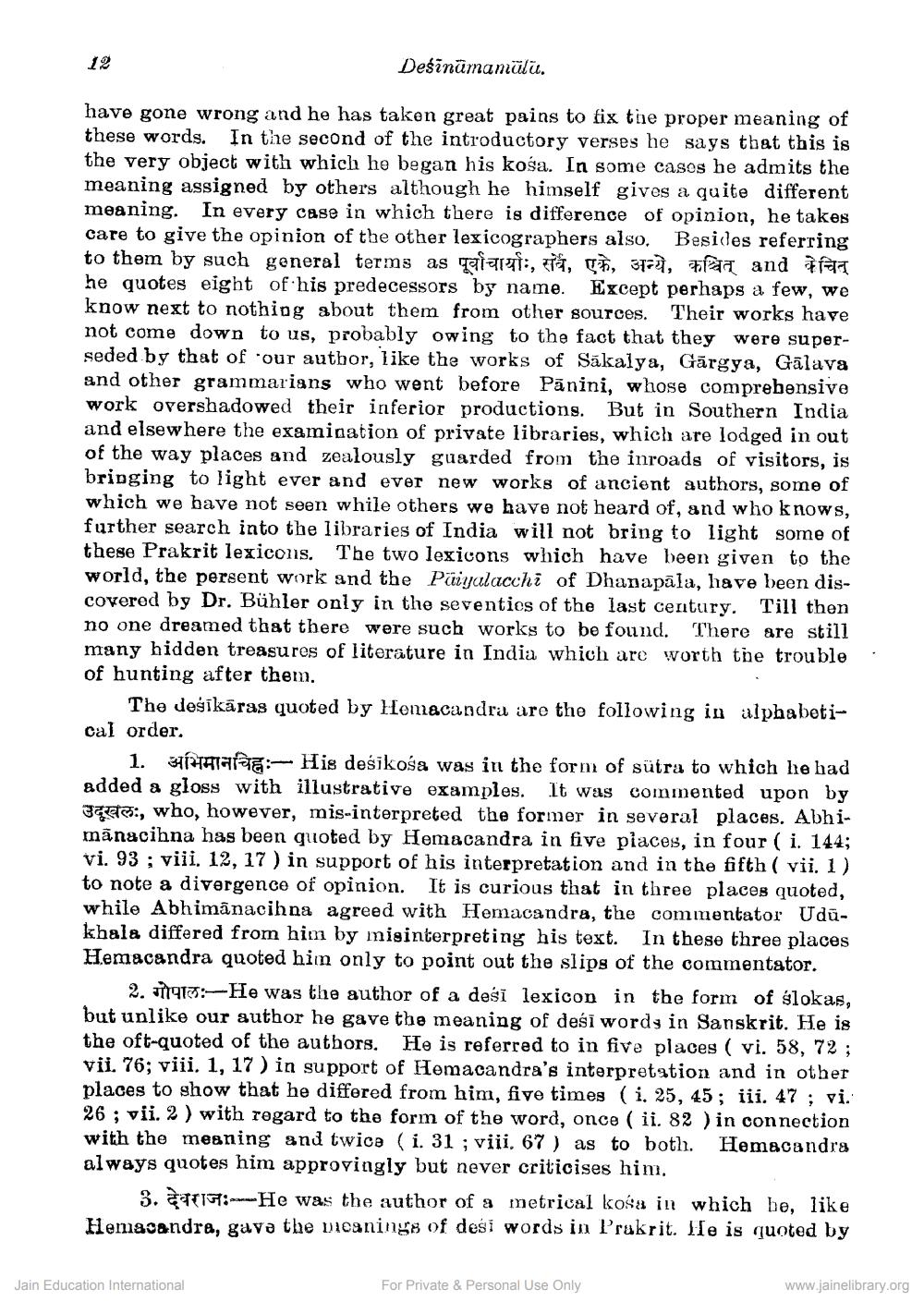________________
12
Dešināmanālu.
have gone wrong and he has taken great pains to fix the proper meaning of these words. In the second of the introductory verses he says that this is the very object with which he began his kośa. In some casos he admits the meaning assigned by others although he himself gives a quite different meaning. In every case in which there is difference of opinion, he takes care to give the opinion of the other lexicographers also. Besides referring to them by such general terms as gairt:, T, T, 37), pola and I he quotes eight of his predecessors by name. Except perhaps a few, we know next to nothing about them from other sources. Their works have not come down to us, probably owing to the fact that they were superseded by that of our author, like the works of Sākalya, Gārgya, Gālava and other grammarians who went before Pānini, whose comprebensive work overshadowed their inferior productions. But in Southern India and elsewhere the examination of private libraries, which are lodged in out of the way places and zealously guarded from the inroads of visitors, is bringing to light ever and ever new works of ancient authors, some of which we have not seen while others we have not heard of, and who knows, further search into the libraries of India will not bring to light some of these Prakrit lexicons. The two lexicons which have been given to the world, the persent work and the Paiyalacchi of Dhanapāla, have been discovered by Dr. Bühler only in the seventies of the last century. Till then no one dreamed that there were such works to be found. There are still many hidden treasures of literature in India which are worth the trouble. of hunting after them.
The desīkāras quoted by Hemacandra are the following in alphabetical order.
1. 311afa:- His desikosa was in the form of sütra to which he had added a gloss with illustrative examples. It was commented upon by Bes:, who, however, mis-interpreted the former in several places. Abhimãnacihna has been quoted by Hemacandra in five places, in four ( i. 144; vi. 93 ; viii, 12, 17 ) in support of his interpretation and in the fifth ( vii. 1) to note a divergence of opinion. It is curious that in three places quoted, while Abhimanacihna agreed with Hemacandra, the commentator Udükhala differed from him by misinterpreting his text. In these three places Hemacandra quoted him only to point out the slips of the commentator.
2. 1917: He was the author of a desi lexicon in the form of ślokas, but unlike our author he gave the meaning of desi words in Sanskrit. He is the oft-quoted of the authors. He is referred to in five places ( vi. 58, 72 ; vii. 76; viii. 1, 17 ) in support of Hemacandra's interpretation and in other places to show that he differed from him, five times (i, 25, 45; iii. 47 ; vi. 26 ; vii. 2 ) with regard to the form of the word, once (ii. 82 ) in connection with the meaning and twice (i. 31 ; viii, 67 ) as to both. Hemacandra always quotes him approvingly but never criticises him.
3. TT19:---He was the author of a metrical kośa in which be, like Hemaoendra, gaya the picanings of desi words in Prakrit. He is quoted by
Jain Education International
For Private & Personal Use Only
www.jainelibrary.org




